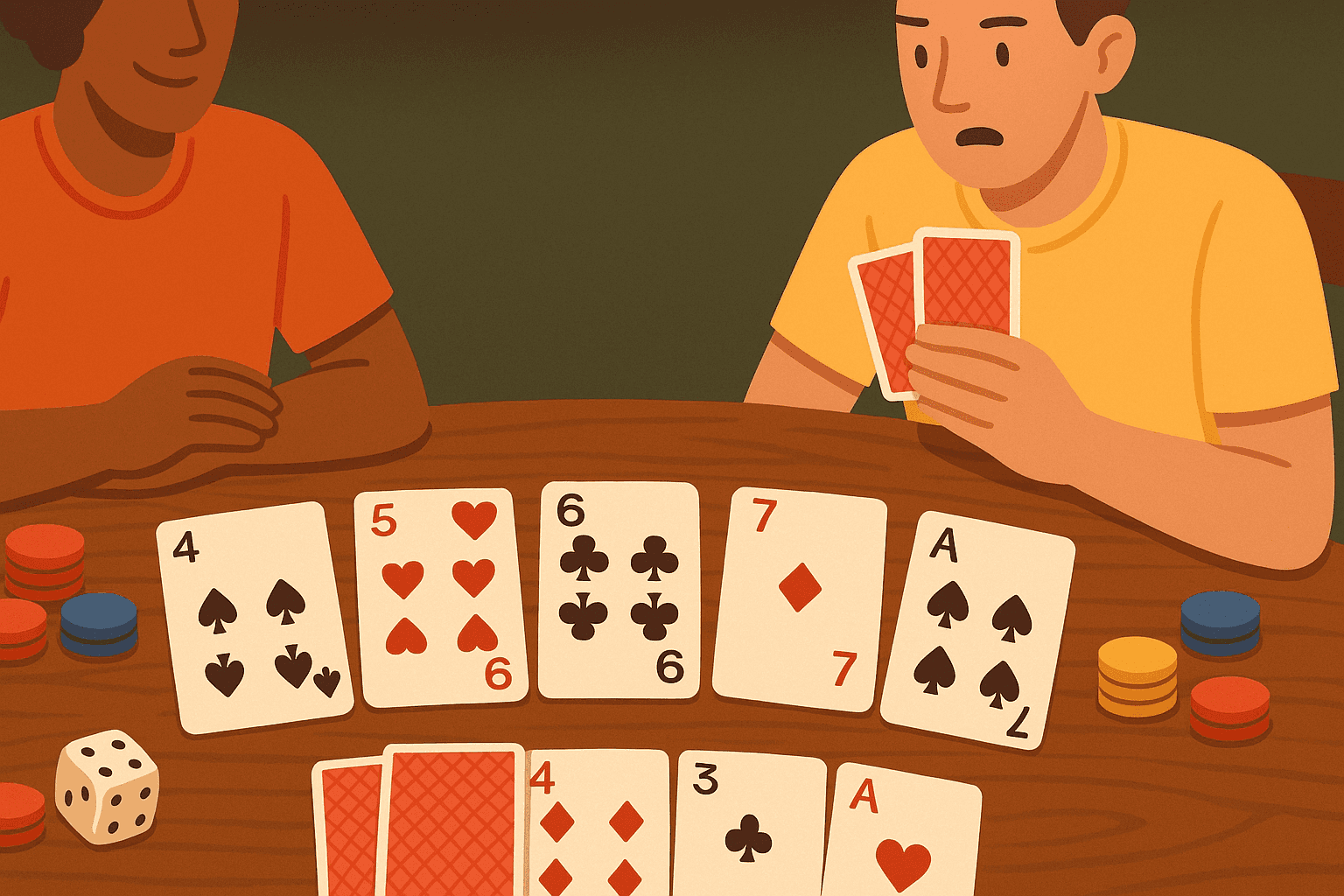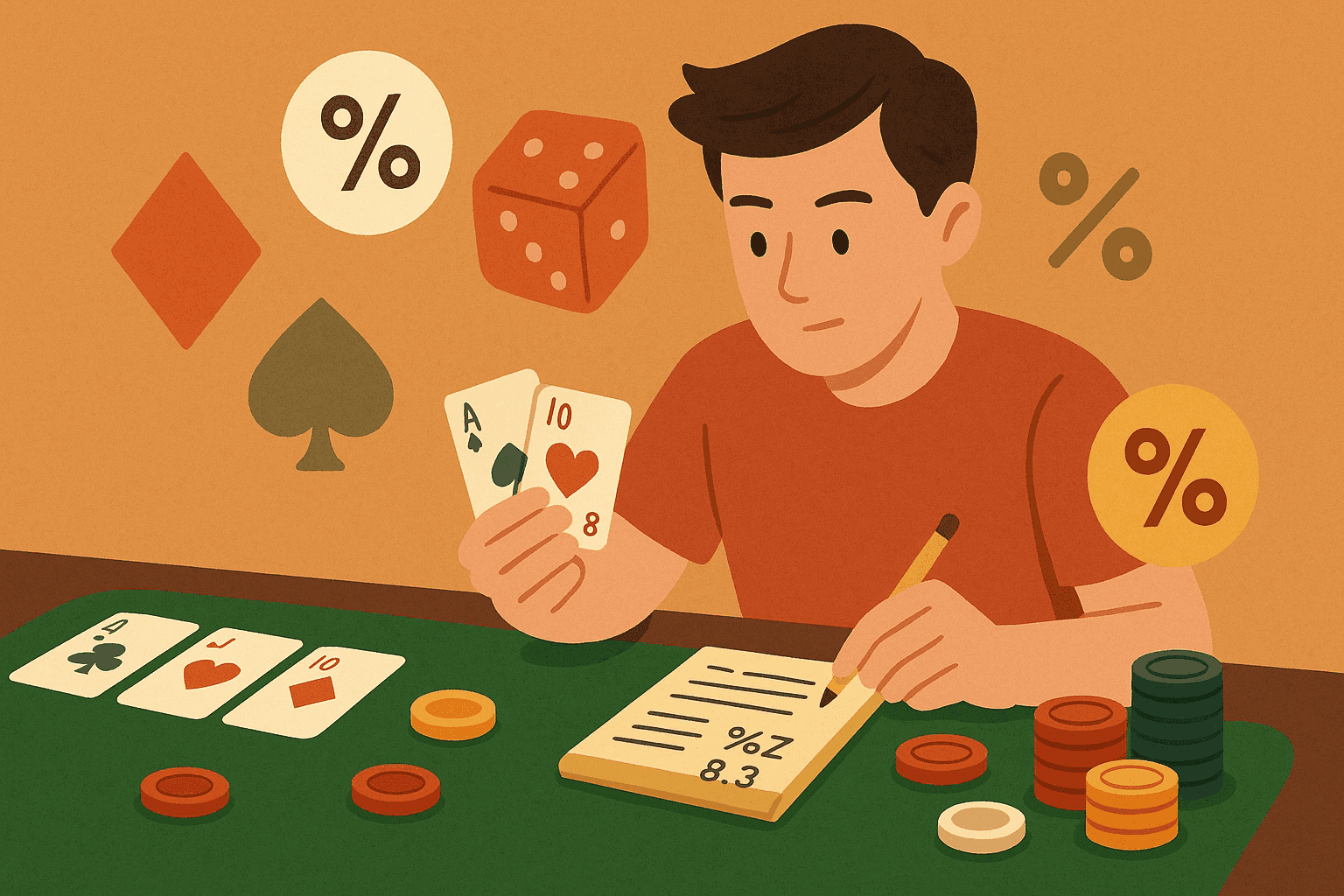
What Beats What in Poker? Hand Rankings Explained
If you’re new to poker, one of the first things you need to learn is which hands beat which. Whether you’re playing Texas Hold’em, Omaha, or another variant, understanding poker hand rankings is essential for making better decisions at the table. This guide explains poker hands from strongest to weakest, with examples and a quick-reference table to make it easy for beginners.
Created By Adam Davis Fernsby
The Basics of Poker Hand Rankings
Poker hand rankings determine the strength of your cards compared to your opponents’ and are the fundamentals of poker rules. While there are many poker variants, most use the same hierarchy, so learning these rankings will help you in nearly every game. Higher-ranked hands beat lower-ranked hands, and ties are usually broken by kickers or the highest-ranking card.
Poker Hand Rankings from Best to Worst
Royal Flush (The strongest possible hand)
- Definition: A, K, Q, J, 10 all of the same suit.
- Example: A♠ K♠ Q♠ J♠ 10♠
- This is the rarest and unbeatable hand in poker.
Straight Flush
- Definition: Five consecutive cards of the same suit.
- Example: 9♦ 8♦ 7♦ 6♦ 5♦
- The second-strongest hand; only a Royal Flush beats it.
Four of a Kind
- Definition: Four cards of the same rank plus any other card.
- Example: K♣ K♠ K♥ K♦ 7♠
- Also called “quads,” this is an extremely strong hand.
Full House
- Definition: Three cards of one rank + two cards of another.
- Example: 10♥ 10♦ 10♠ 6♣ 6♦
- When two players have a full house, the one with the higher three-of-a-kind wins.
Flush
- Definition: Any five cards of the same suit, not in sequence.
- Example: A♥ J♥ 8♥ 5♥ 2♥
- If two players have a flush, the highest card decides the winner.
Straight
- Definition: Five consecutive cards of any suit.
- Example: 7♣ 6♦ 5♠ 4♥ 3♣
- In case of a tie, the straight with the highest top card wins.
Three of a Kind
- Definition: Three cards of the same rank + two unrelated cards.
- Example: Q♠ Q♥ Q♦ 9♣ 5♠
- Also known as “trips” or “a set.”
Two Pair
- Definition: Two cards of one rank + two cards of another + one extra card.
- Example: J♣ J♦ 7♥ 7♠ 3♦
- If two players have two pairs, the highest top pair wins.
One Pair
- Definition: Two cards of the same rank + three other cards.
- Example: 8♠ 8♦ A♣ J♥ 4♠
- The kicker (highest unmatched card) decides ties.
High Card
- Definition: When no other hand is made, the highest card determines the winner.
- Example: A♣ Q♥ 8♦ 6♠ 3♣ → “Ace-high” wins if no one has a better hand.
Quick Poker Hand Rankings Table
| Rank | Hand | Example | Description |
|---|---|---|---|
| 1 | Royal Flush | A♠ K♠ Q♠ J♠ 10♠ | Best hand in poker, unbeatable |
| 2 | Straight Flush | 9♦ 8♦ 7♦ 6♦ 5♦ | Five in sequence, same suit |
| 3 | Four of a Kind | K♣ K♠ K♥ K♦ 7♠ | Four cards of the same rank |
| 4 | Full House | 10♥ 10♦ 10♠ 6♣ 6♦ | Three of one rank + a pair |
| 5 | Flush | A♥ J♥ 8♥ 5♥ 2♥ | Five cards, same suit |
| 6 | Straight | 7♣ 6♦ 5♠ 4♥ 3♣ | Five consecutive cards |
| 7 | Three of a Kind | Q♠ Q♥ Q♦ 9♣ 5♠ | Three cards of the same rank |
| 8 | Two Pair | J♣ J♦ 7♥ 7♠ 3♦ | Two different pairs |
| 9 | One Pair | 8♠ 8♦ A♣ J♥ 4♠ | A single matching pair |
| 10 | High Card | A♣ Q♥ 8♦ 6♠ 3♣ | Highest card decides winner |
Tips for Remembering Poker Hand Rankings
- Group hands by strength: Royal Flush, Straight Flush, and Four of a Kind are rare - learn these first.
- Memorize the top three hands: Knowing them gives you confidence in strong situations.
- Use visual aids: Keep a ranking table nearby until it becomes second nature.
Conclusion
Understanding poker hand rankings is essential for anyone who wants to improve their game. Whether you’re playing Texas Hold’em, Omaha, or other poker variants, knowing what beats what helps you make smarter, faster decisions at the table. Practice regularly, use the cheat sheet when needed, and soon you’ll instinctively know the strength of your hand in every situation.


